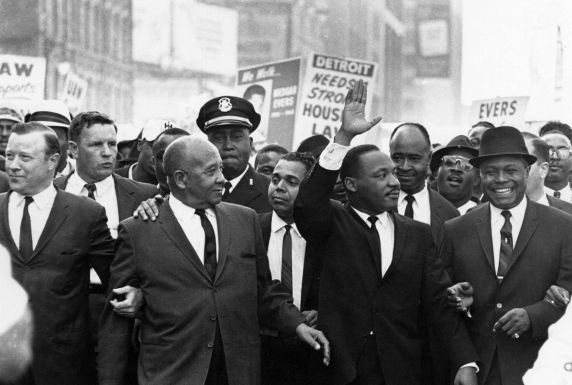The History of Struggle in America in Defining Race and Society
“African American resistance has always been a struggle… against racism, white supremacy, [and] inequality.”

The word “patriotism” is often used in the context of abiding by the status quo, indicating an element of deference or obedience to the law of the land. But Americans have historically pushed back against the status quo. This was true of the American Revolution, the end of slavery through the Civil War, women’s suffrage, and the end of Jim Crow laws.
“Struggle on Their Minds: The Political Thought of African American Resistance,” a new book written by University of Detroit Mercy political science professor Alex Zamalin, looks at the role resistance has played in key moments of American history.
The book focuses on the lives and words of David Walker, Frederick Douglas, Ida B. Wells, the Black Panther Party, Huey Newton and Angela Davis. According to the book’s description…”each helped revise and transform ideas about power, justice, community, action, and the role of emotion in political action.”
Zamalin speaks with Detroit Today host Stephen Henderson about the new book and the nature of African American resistance in the United States.
According to Zamalin, there is a difference between the narrative around African American struggle and mainstream resistance.
“African American resistance has always been a struggle, in part, against racism, white supremacy, [and] inequality,” says Zamalin. “In other words, things that the American revolutionaries were not as concerned with. The American revolutionaries were much more interested in…securing political freedom from the British.”
Mainstream notions of resistance typically revolve around political freedom for those that already have a certain amount of capital such as land, says Zamalin.
“But the history of African American resistance, whether you look at the anti-slavery struggle or the anti-lynching struggle…has always been centered, at least in part, on dealing with social inequality and economic inequality,” he says.
Click on the audio player above for the full conversation.
